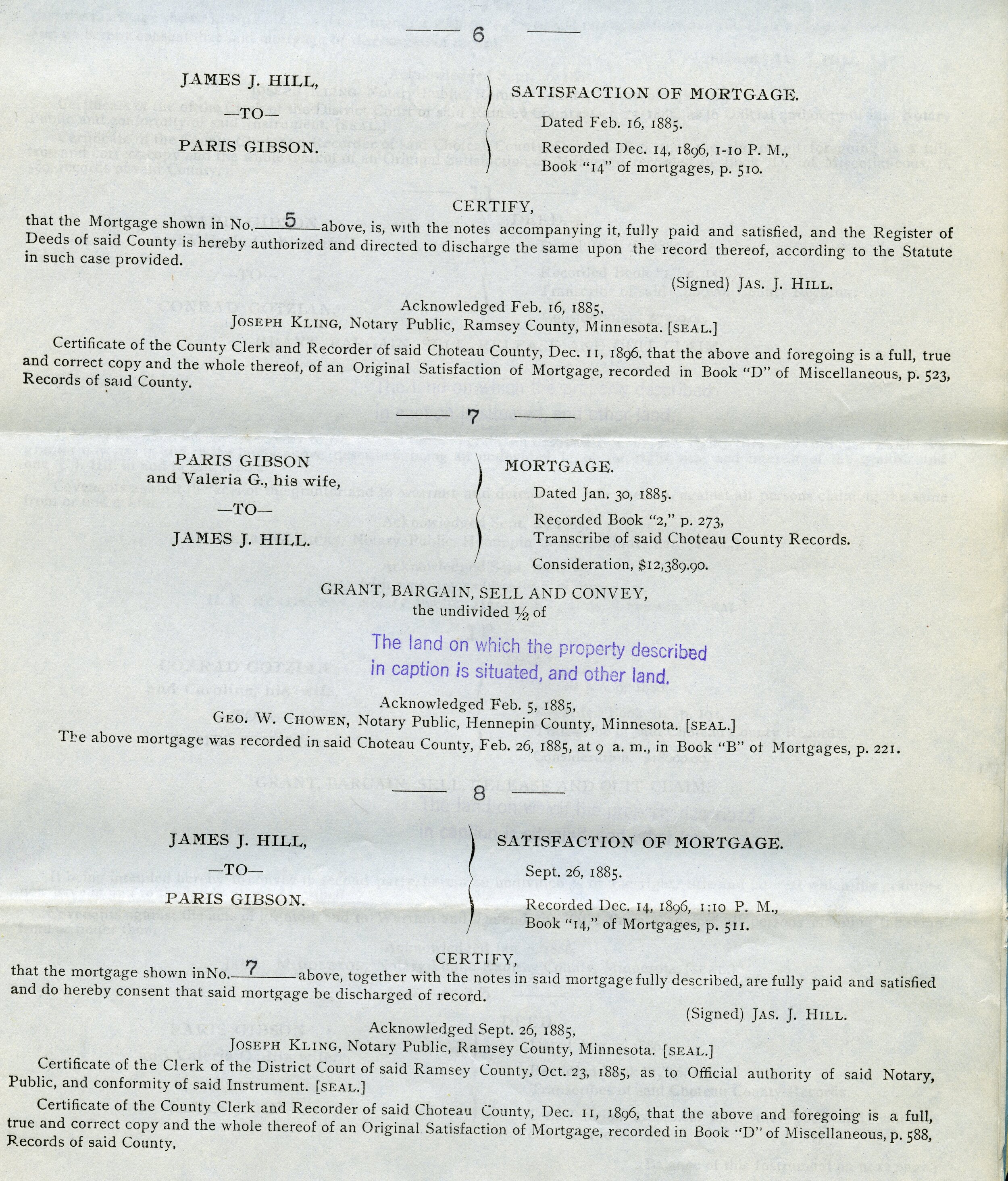What is an Abstract of Title?
These documents are brought to the archives quite frequently. People sense that they are important, but don’t really understand them. In today’s mindset, we buy a house or a building. Back the late 1800’s through the 1940’s, the mindset was more the purchasing of a piece of land and whatever was on it. To that end, when a property was sold, it was described by its lot and block number in the townsite listing. We don’t see these documents anymore since roughly the 1980’s when title insurance became a more prevalent practice and abstracts were no longer needed.
A few definitions just to help:
Abstract of Title: The brief chronological overview of the historical legal documentation associated with a property including titles, transfers and claims against the property. Typically, an abstract of title for a property will begin with the initial grant deed and include all subsequent changes in ownership as well as any additional claims, including easements, encroachments, encumbrances, liens, litigations, restrictions, and tax sales.
Note: This is why every single Abstract of Title for the Great Falls area has Paris Gibson, James J. Hill, and Herbert P. Rolfe’s names on them. They were the ones who created the plat and townsite of Great Falls.
Grant deed: legal document used to transfer ownership of real property. The grantor is the person transferring the property, and each grantor must sign the deed. A grant deed contains the name of the person or entity transferring the property (the grantor); the legal description of the property being transferred (i.e., lot number, tract number, city, county, and state); and the name of the person or entity that the property is being transferred to (the grantee). The grant deed shows that the title has not already been granted to another person. The grant deed is written proof that an individual owns a property. The grant deed also provides title guarantees to the new owner — insurance that the property title is free of claims or liens and the new owner has the right to sell or transfer the property to another.
-Megan Sanford, Archives Administrator





